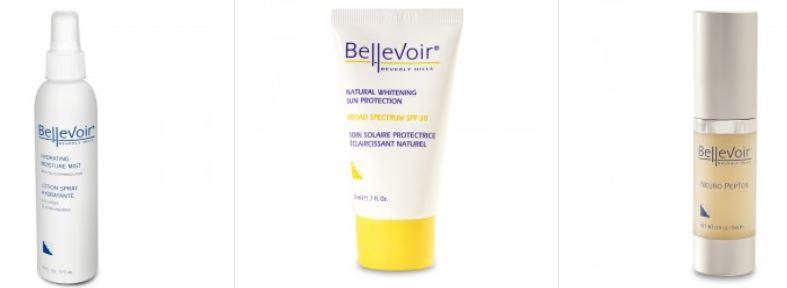Are Anti-Aging Products Feeding on Insecurities
In a world where youth is often equated with beauty and vitality, the quest for eternal youth has become a booming industry. Shelves in pharmacies and department stores are lined with an array of anti-aging products, each promising to turn back the hands of time with the latest scientific breakthrough or ancient remedy. Yet, beneath the glossy packaging and alluring promises lies a deeper question: are these products truly offering a fountain of youth, or are they preying on our deepest insecurities? As society continues to grapple with its obsession with age, it’s time to peel back the layers and examine whether the pursuit of youthful perfection is a genuine desire for self-improvement or a response to societal pressures. This article delves into the complex relationship between anti-aging products and the insecurities they may exploit, inviting readers to consider the fine line between self-care and self-doubt.
Marketing the Fountain of Youth Exploring the Psychological Impact
In the world of anti-aging products, the quest for eternal youth often treads a fine line between aspiration and exploitation. These products promise to erase the traces of time, tapping into a deeply rooted societal obsession with youthfulness. But what psychological toll does this take? The marketing strategies employed by these companies frequently leverage the power of insecurities, subtly reinforcing the notion that aging is a flaw to be corrected rather than a natural progression of life.
- Fear of Aging: Advertisements often amplify the fear of aging, presenting wrinkles and gray hair as adversaries to be conquered.
- Idealized Imagery: The use of flawless, youthful models creates an unattainable standard, prompting consumers to equate beauty with youth.
- Promises of Transformation: By offering miraculous results, these products suggest that one’s worth and happiness are tied to maintaining a youthful appearance.
Such tactics can subtly manipulate consumers into a perpetual cycle of dissatisfaction, where the purchase of anti-aging products becomes less about self-care and more about appeasing an internalized fear of growing older. The psychological impact is profound, fostering a culture where aging is seen not as a journey of wisdom and experience, but as a decline to be resisted at all costs.

Decoding Ingredients What Science Says About Anti-Aging Claims
The allure of anti-aging products often lies in their promising ingredient lists, but how do these components truly measure up under scientific scrutiny? While many products boast of retinoids, peptides, and antioxidants as their secret weapons, it’s crucial to understand the research backing these claims. Retinoids, derived from vitamin A, are one of the few ingredients with substantial evidence supporting their ability to reduce fine lines by promoting collagen production. Peptides, on the other hand, are small proteins that can potentially aid in skin repair and improve elasticity, though their effectiveness often varies with formulation.
When it comes to antioxidants like vitamin C and green tea extract, they are touted for their ability to neutralize free radicals and protect against environmental damage. However, their efficacy largely depends on the concentration and stability of the formulation. It’s also important to note that while these ingredients can help improve the appearance of aging skin, they are not miracle workers and often require consistent use over time to see visible results. Consumers should approach these products with a critical eye, weighing scientific evidence against marketing claims to make informed decisions.
Navigating the Beauty Aisle How to Choose Products Wisely
When faced with the myriad of choices in the beauty aisle, it can be overwhelming to determine which anti-aging products are truly beneficial and which might be capitalizing on personal insecurities. Identifying key ingredients is a crucial first step. Look for scientifically backed components such as retinoids, peptides, and hyaluronic acid. These ingredients have been shown to have genuine effects on skin health and appearance. Avoid products with extravagant claims that lack clinical support, as these may merely be marketing ploys aimed at exploiting self-doubt.
It’s equally important to understand your own skin type and needs. Here are a few tips to help you make informed decisions:
- Assess your skin’s sensitivity: If you have sensitive skin, opt for products with gentle formulations and avoid harsh chemicals.
- Prioritize hydration: For dry skin, focus on moisturizers that offer deep hydration and barrier repair.
- Consider long-term benefits: Invest in products that offer gradual improvements rather than instant, short-lived results.
By focusing on these aspects, you can select products that genuinely enhance your skin’s health, rather than just addressing surface-level insecurities.

Building Confidence Beyond Creams Embracing Natural Aging
In a world where beauty is often equated with youth, it’s easy to see how anti-aging products capitalize on our insecurities. The industry, while offering countless solutions in bottles and jars, sometimes neglects the most powerful tool of all: self-confidence. Natural aging is a journey, not a battle, and embracing it can be an empowering experience. By shifting the focus from covering up signs of aging to celebrating them, we allow ourselves to see beauty in maturity and wisdom.
- Mindful Living: Embrace practices like yoga and meditation that cultivate inner peace and acceptance.
- Nurturing Habits: Prioritize healthy habits like balanced nutrition and regular exercise to support well-being.
- Community Connection: Engage with communities that celebrate all stages of life, fostering a sense of belonging and shared experience.
Each wrinkle and gray hair tells a story, a testament to experiences lived and lessons learned. By redefining beauty standards and focusing on inner growth, we can cultivate a society that values authenticity over artificial perfection.
Wrapping Up
As we close the chapter on the intricate world of anti-aging products, we find ourselves standing at the crossroads of desire and acceptance. The allure of youthful radiance, packaged in glossy jars and promising elixirs, beckons to our deepest insecurities, whispering tales of eternal youth. Yet, within this complex narrative lies a poignant reminder: true beauty transcends the superficial layers of skin.
As consumers, we wield the power to discern between the whispers of marketing and the truth of our own self-worth. In a world eager to capitalize on our fears, perhaps the most revolutionary act is to embrace the passage of time with grace and confidence. For in every line and wrinkle lies a story of resilience, a testament to a life fully lived.
So, as you navigate the shimmering aisles of promises, remember to pause and reflect on the essence of who you are, beyond the fleeting reflections of the mirror. the most profound anti-aging remedy may simply be the acceptance of one’s own unique journey.


